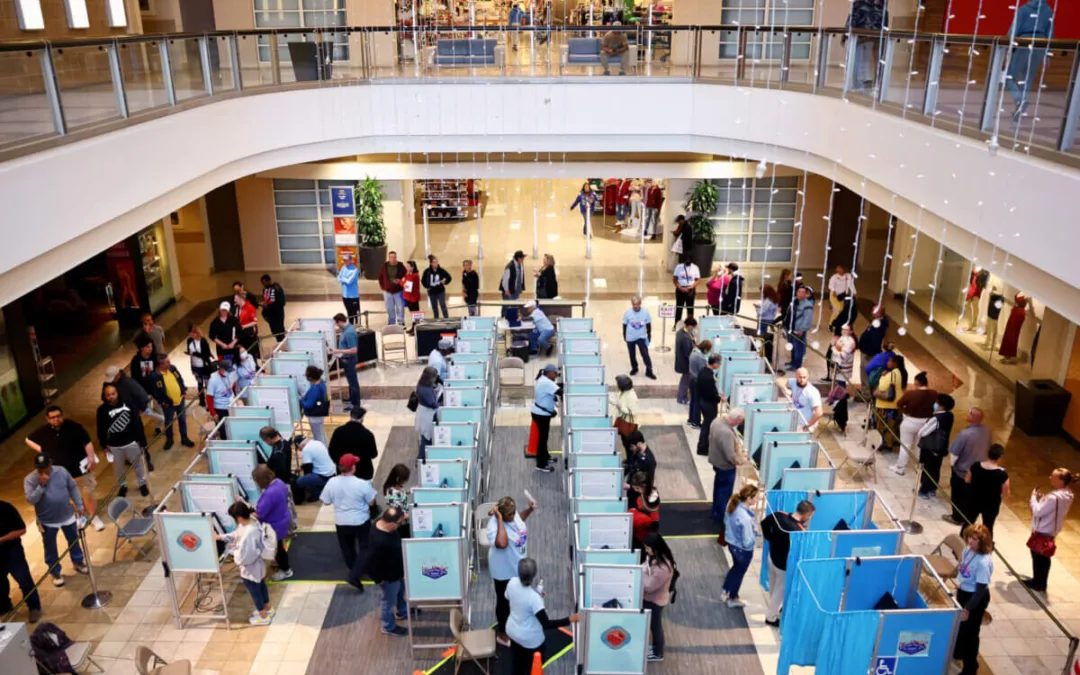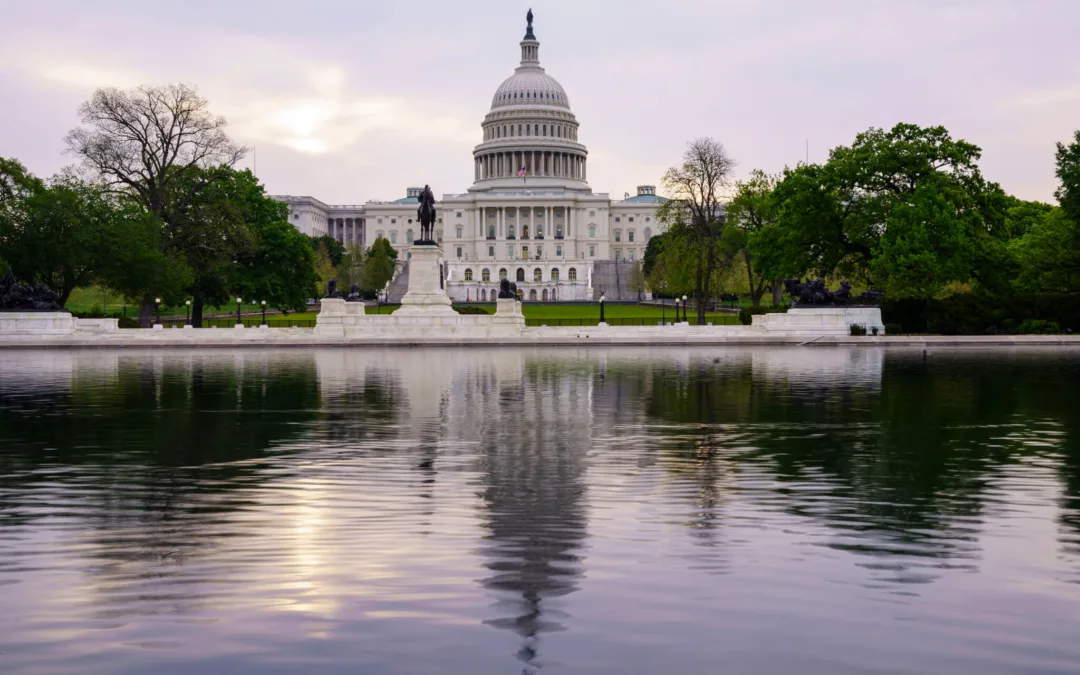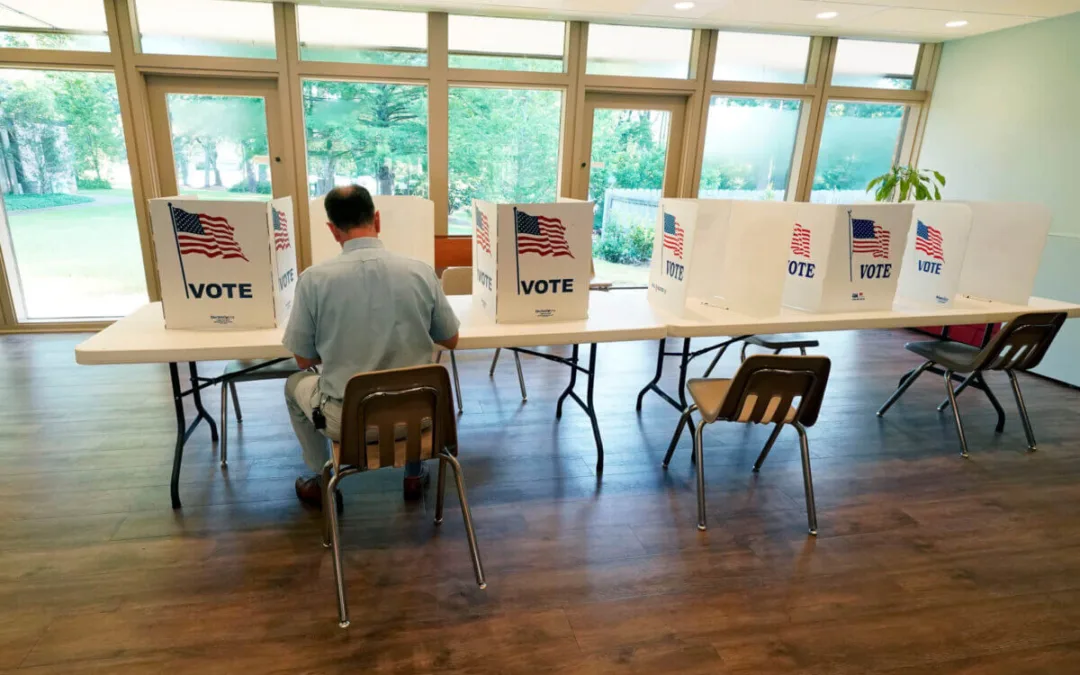
(AP Photo/Lynne Sladky)
Five Trump-approved judges have overturned a decision that would have prevented formerly convicted felons from paying fees before they were allowed to vote.
On Saturday, a group of Florida lawyers announced that they are willing to provide free legal counsel to people who have served time behind bars and are seeking to vote in the 2020 presidential election. The move came just a day after a federal appeals court upheld a Florida law that denies voting rights to hundreds of thousands of people with past felony convictions.
Rep. Michael Grieco (D-FL), who is also an attorney, posted on Twitter, “If you are a returning citizen looking to vote in the 2020 election or you know someone who is, many Florida attorneys including myself will assist pro bono in trying to get you eligible. Oct. 5 is the registration deadline.”
RELATED: It’s Official. Formerly Incarcerated People Will Be Allowed to Vote Despite Legal Fees
The term “returning citizen” refers to formerly incarcerated people who have completed their sentence and are once-again free citizens. Rep. Grieco added that he provided free legal services to returning citizens this year but is now looking to revamp those services after the Sept. 11 ruling.
Sen. Jason Pizzo (D-FL), who’s an attorney as well, said he is also willing to assist. “Three weeks until the 10/5 registration deadline to vote 11/3. Me and a bunch of other pro bono attorneys (w/a hell of a lot of courtroom experience) remain ready to get returning citizens quickly through the court process and on to the polls! DM me or @ChiefMaggs38 🗳#Amendment4.”
Here’s a brief timeline of this issue that affects the right to vote for formerly incarcerated people:
Nov. 6, 2018: During the midterm elections, voters passed the “Voting Restoration Amendment 4,” which had restored voting rights to over a million people with past felony convictions.
May 3, 2019: In response to that amendment, Gov. Ron DeSantis passed legislation that would require formerly incarcerated people to pay fees they acquired from their sentencing or get these obligations excused by a judge, which in turn would allow them to vote.
May 2020: A district court agreed that DeSantis’ legislation was unconstitutional because it restricted returning citizens’ right to vote. The State of Florida then appealed that decision to the 11th Circuit Court of Appeals.
Sept. 11, 2020: Five out of the six judges, approved by President Donald Trump, voted to reverse the May ruling. In a statement provided by the New York Times, Fred Piccolo, a spokesman for Gov. DeSantis, said Friday’s decision “underscored that Amendment 4, as the referendum was known, would restore the rights of felons only if they had completed the entirety of sentences, including paying court fines and fees.”
A study shows that nearly 800,000 former returning citizens in Florida owe legal, financial obligations. Now, under the new ruling, they will not be able to vote until they pay those fees.
Politics

Teamsters and UPS Reach Tentative Deal to Avoid Strike, 340,000 Workers to Get Raises
The tentative deal represents a huge win for full- and part-time UPS Teamster workers, who would get significant pay raises and better working...



One Republican Senator Is Blocking 265 Military Promotions, Leaving the Marines Without a Confirmed Leader
Sen. Tommy Tuberville's decision means these military officers are not getting the pay raises they’re owed, cannot move their families to wherever...
Local News



Teamsters and UPS Reach Tentative Deal to Avoid Strike, 340,000 Workers to Get Raises
The tentative deal represents a huge win for full- and part-time UPS Teamster workers, who would get significant pay raises and better working...



One Republican Senator Is Blocking 265 Military Promotions, Leaving the Marines Without a Confirmed Leader
Sen. Tommy Tuberville's decision means these military officers are not getting the pay raises they’re owed, cannot move their families to wherever...




